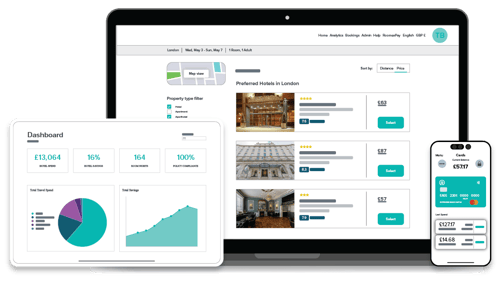The age-old quest of getting a good night’s sleep is something we’re all in search of. After all, the pros of restorative shut-eye have been well documented. From helping to repair our muscles and aiding memory, to maintaining a healthy heart and putting us in a better mood the next day. The benefits are widespread and many.
However, there are some industries where this effects employees more than others.
With unsociable working hours and long working days away from home, construction workers are prone to this more than most other professions. That said, any employee requiring travelling for work is susceptible to interrupted sleep patterns.
A recent study found that four out of five people have trouble sleeping when travelling for work and being away from home. This results in an average loss of 45 minutes sleep a night. For those in the construction trade who are frequently away, this can be an all too familiar situation.
So, what can be done?
Thanks to an abundance of research and insight, we know that there’s a few ways to combat bad sleep habits and get better Zzz’s. Here’s how…
Keep it regular
When you’re travelling for work, it’s easy to get out of good habits – such as a regular bedtime. Hand-in-hand with construction is irregular work hours. However, if it’s in any way possible, try and keep to a regular sleep pattern. Soon enough your body will adapt to your natural rhythm making it easier to nod off at the same time.
Cease the light
One of the challenges with late-night working is being deprived of natural daylight. An issue that’s even harder as winter draws in. To combat this, try and get out and about in the natural daylight wherever possible, even if this means waking up a little bit earlier. There’s many reasons why daylight is good for us, from helping with energy levels to getting enough vitamin D.
Sleep aids
Being in a different environment at night time can be disruptive to our natural sleep pattern. Staying in hotels when travelling for work takes us out of our comfort zone. This can impact our ability to get off to sleep, or indeed have a good night’s rest.
To help create a soothing environment, certain sleep aids might help. From ear plugs to eye masks, as well as natural remedies such as lavender oil – it’s worth trying to help make sure you get your minimum seven hours.
Late night bingeing
Sadly, that late night McDonalds will do you no favours when it’s time to rest! Diet can play havoc with your body clock, especially caffeine, which can be found in food as well as drink. The same applies to drinking alcohol.
Being aware of this while travelling for work will help keep your consumption in check. Try and limit alcohol intake and food and drink before going to sleep.
Get cosy
One way to have a better night’s sleep is to make your bedroom cosy. This means paying attention to the room temperature - 60-67 degrees is ideal. Make sure your bedding is comfortable – ask for softer/firmer pillows if you need them, this can all contribute to getting quality sleep.
Learn to wind down
A modern-day problem we all suffer from is technology in the bedroom. Try and ditch late night emails and phone surfing, as too much blue light can alert your senses. Try and find a way to unwind before going to sleep. This might be a cup of herbal tea, reading a book, having a bath, or simply listening to gentle music.
Monitor your wellbeing
Modern devices such as Fitbits and the Apple watch can help monitor your daily steps, nutrition, sleep and much more. If you’re living life in the fast lane, but still want to keep on top of your wellbeing, a monitoring device might be a useful tool.
Keep it continental….
It’s not uncommon for a mid-day nap in the continent. It’s a practice we could benefit from in the UK. If you’ve been working long hours, or feel in need of a rest, there’s many benefits in taking a light nap. Studies have found that even as little as eight minutes sleep during the day was enough to perk up your memory.
If you’re on a hectic schedule, use natural downtimes to catch up on rest. For instance, if you’re travelling for work by train, take advantage of the journey to get some shut-eye.
Curb your activity
Being active before bedtime is not recommended for a restful sleep. This includes responding to work calls and messages, as well worrying about work issues before nodding off.
To overcome this, try and allocate a specific time in your day when you think about the day ahead, perhaps after lunch. Where possible, try to avoid these distractions when you’re falling asleep.
Tags:

December 5, 2019

